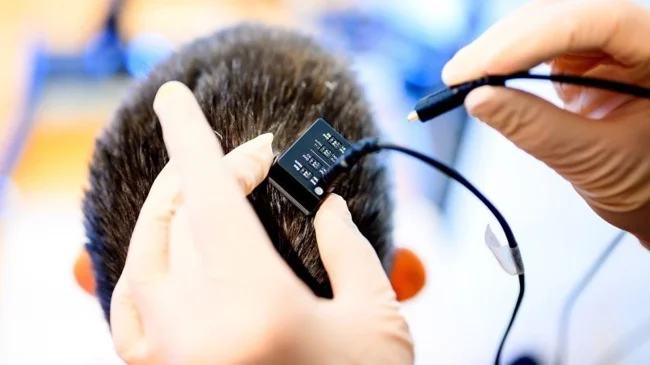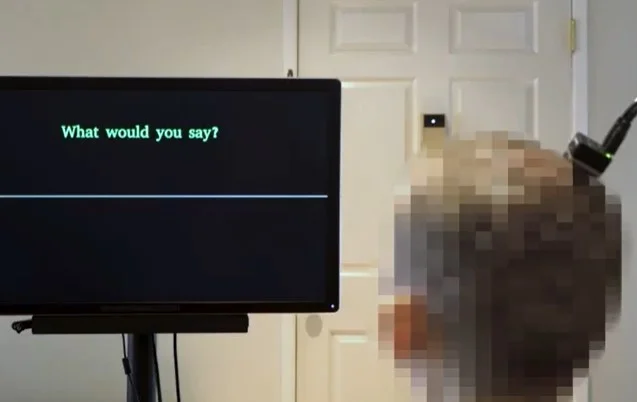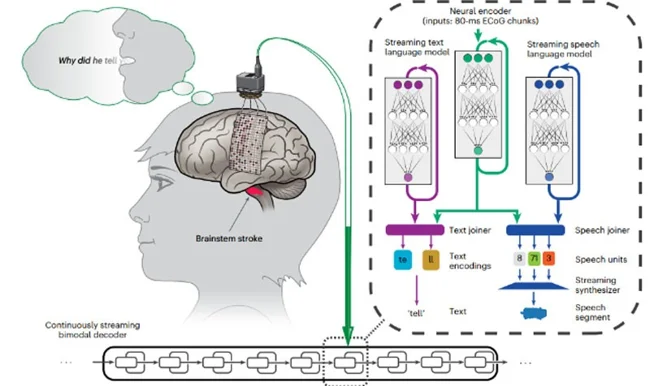Scientists have developed a brain implant that translates thoughts into speech almost instantly (3 photos + 1 video)
Scientists have perfected brain-computer interface (BCI) technology to the point where a paralyzed woman can transmit her thoughts as audible speech in near real time. 
Researchers have made progress in developing neural implants that allow people with paralysis to communicate using their thoughts. The new brain-computer interface converts neural signals into speech in just three seconds, simultaneously recognizing words and producing them in a synthetic voice.
The experiment involved a woman named Anne, who lost the ability to speak after a brainstem stroke in 2005. Eighteen years later, a thin rectangular sensor with 253 electrodes was implanted on the surface of her cerebral cortex. It records the activity of thousands of neurons at a time.
To make the synthetic voice sound as natural as possible, the researchers personalized it by training the AI algorithms on recordings of Anne's wedding video taken before her injury. This allowed the implant to reproduce speech in a voice similar to her own. 
During the experiment, Anne silently spoke 100 sentences from a set of 1,024 words and 50 phrases that appeared on the screen. The device read her neural signals every 80 ms. As a result, the system produced between 47 and 90 words per minute, which is close to the speed of natural conversation (about 160 words per minute).
This was a marked improvement over previous versions of the technology and Anne's current device, which currently takes more than 20 seconds to produce a single sentence. 
However, experts note that even the new technology cannot yet compete with natural speech in terms of speed. The delay is especially noticeable when pronouncing long phrases. Research shows that a delay of more than 50 ms can already confuse the listener.


























